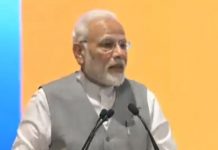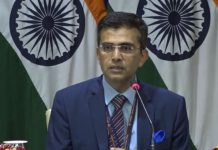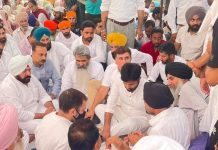
IT IS common practice for the great lawyers of fiction to end their courtroom philippics with an appeal to the innate nobility of the justice system. Something along the lines of Atticus Finch’s “There is one human institution that makes a pauper the equal of a Rockefeller, the stupid man the equal of an Einstein, and the ignorant man the equal of any college president”, for instance, or Boston Legal protagonist Alan Shore’s “Elected officials represent the will of the American people, but the Supreme Court has always reflected our soul and our conscience”. For Colin Gonsalves — in some ways a cross between the two — the transformative power of the third pillar is much more than a rhetorical device. The 60-year-old has spent the best part of four decades using the judiciary to try and make India a better country for its citizens, from a number of bitter legal battles that incrementally improved conditions for workers, to the long campaign to get the Supreme Court (SC) to recognise an inalienable right to food, to the unending trench warfare to preserve our civil liberties and preventing exploitation, and now, the quixotic struggle to quell the bloodlust of the Indian State in implementing the death penalty.
It is the day after a rare victory in this last battle that I first meet Gonsalves: a stay order secured from the SC in the hanging of four aides of sandalwood smuggler Veerappan until another bench decides whether it is humane for the State to hang those who have already spent a long time in prison. It is a welcome relief, days after the hanging of Afzal Guru, despite the same unanswered question being applicable to him.
Afzal Guru’s was the first capital case Gonsalves fought in the SC. Accepting the case because nobody else was willing to represent Guru, he made up for his lack of experience with his renowned tenacity. But the doors were closed on Guru, Gonsalves says, before he could even begin his argument. He then took up the case of Dhananjoy Chatterjee, who in 2004 became the first person to be hanged in India in the 21st century. He is convinced that both Guru and Chatterjee were innocent, hung only on the basis of circumstantial evidence after being denied adequate representation and being sentenced by judges “unable to distance themselves from the frenzy of society”; examples, he says, of the judiciary’s lack of empathy for the poor in recent years.
The sense of injustice did not overwhelm Gonsalves; he says he accepted the verdicts with stoicism. “I suppose it’s like being a surgeon. You perform an operation to the best of your capacity, and after that you don’t think. The result may be disappointing or exhilarating, but it’s not the result that’s important; it’s the doing of a job properly. I don’t think there is a single death penalty case where we spent a minute less than necessary.”
On first impression, the bespectacled man with a beatific smile does not appear to be the tireless crusader he is reputed to be. But it is when he talks about revolution (defying Churchill’s maxim, he did not become a conservative at 30, or even 60, retaining the Marxism of his youth) and the ills of society that one sees the steel, the resolve necessary to carry on with the Sisyphean task of achieving social change when even your most minor victories are rolled back by the regressive judgments of later courts. Also evident, as he tells his story, is his willingness to stand for a principle, even if it goes against conventional wisdom or if he doesn’t have the relevant experience. He was, after all, regularly defending thousands of workers at a time in Mumbai’s labour courts before he had even qualified as a lawyer.
Born in Mumbai in 1952 to lower middle-class parents, Gonsalves says he had a very conventional and religious childhood. “I could say the I Confess in Latin. How much more orthodox can you get than that?” After completing school and realising that his parents had no specific academic goals for him, he applied for the IITs because a friend was doing so, and got in. It was while studying civil engineering at IIT Bombay, ironically, that he embraced communism, through a Marxist study group that included, among others, Praful Bidwai and Sudheendra Kulkarni, and was politically very active, especially during the Railways strike of 1974. Not satisfied with his engineering job when he graduated a year later, he started living and working in a textile workers’ chawl, dabbling in trade union efforts as well as more general social work. Still not entirely satisfied, he feels he drifted for almost five years.
Until one morning in 1981, when on a whim (most important decisions of his life, he says, have been whims), he decided to join Datta Samant, the militant trade unionist, to the horror of his Marxist friends. He would work 15 hours a day to draft letters from workers to management for “the princely sum of 500 a month”. His career in law was a consequence of this association. “I noticed that Dr Samant had a policy of not going to courts,” he recalls, “We had many injunctions against us, orders against going on strike. I suggested we go defend ourselves. He took a decision almost instantly, and said, ‘Okay, go and appear in the courts for us.’ I hadn’t the foggiest idea about labour law, but I would put on a brave face and talk to the petitioners.” Gonsalves couldn’t have picked a more tumultuous time to enter labour law — Mumbai in the 1980s was the front line of labour litigation, with frequent strikes, lockouts and momentous cases that would set precedents for the years to come. Samant’s son Bhushan, who says that Gonsalves was practically part of the family, remembers him as a tireless fighter, who served as an essential intermediary between the people and the law, rather than a typical lawyer.
Since he didn’t have a degree (he appeared in court as ‘union representative’, not as a lawyer), opposing lawyers would complain to the judge that he was impersonating a lawyer. Eventually, Gonsalves realised it was time to get a real degree. He went to a college he sheepishly asks me not to name, and asked the registrar to enroll him in first year law. The registrar, in turn, offered to register him directly for the exam, prescribing a few guides he could cram from. Gonsalves accepted. He would do the same the next two years. Thus did one of the most respected SC lawyers today graduate without attending a single class.
When I meet Gonsalves next , it is a Monday night, and the Delhi office of the Human Rights Law Network (HRLN) — which he founded in 1989 and has grown into India’s largest legal aid organisation — is almost empty. He’s in a meeting with some union representatives for a case about irregularities in elections. His clients raise a number of grievances with management, but he brusquely refuses to discuss anything that is not germane to the case at hand. It is an example of his pragmatism (here, he is more Atticus than Alan), borne out of learning the practice of law inside hostile courtrooms rather than classrooms. Biraj Patnaik, who worked with him on the right to food case, one of the longest running cases on economic and social issues in the world, feels this pragmatism is his greatest strength and a major reason the 13-year-long legal battle was successful. “Unlike other human rights lawyers, who I often find addressing the gallery, Colin’s singleminded purpose is moving the case forward with the bench,” says Patnaik.
Over the years, little has changed with Gonsalves’ work ethic (co-workers and interns agree he is a hard taskmaster; already, as the clients leave, he calls to ask his stenographer and another lawyer to be in office by 8 am the next day); he is in the office at 7 am and rarely leaves before 10 pm. But the late nights, he says, are not only because of the quantum of work: he takes three hours, between 4 and 7 pm to take his two-year-old daughter Tara (“The greatest thing to ever happen to me”) to the nearby Lodhi Gardens to play. “I suppose there’s much to be said for the revolutionary way,” he says, “where every breath is dedicated to revolution. But — and I’m realising this late in life — there’s also much to be said for the activist who also brings up a family; it gives that person a very rounded view of life.” Fatherhood has also made tangible the hitherto abstract concepts of reforming education and cleaning up the environment in Delhi, a city he moved to in 2001 (on a whim, naturally; “I knew no one in the city,” he says. “I had no work for over a year.”), in order to be able to argue in the SC.
The pressures of family, however, haven’t made the lure of money any more effective for Gonsalves. The HRLN, for one, primarily works pro bono, rarely refusing a case (“bad luck”) and taking a fee only if the client can afford one. “I’ve never had a hankering for the big things,” he says. “I’m quite reconciled to the middle-class life I lead.” Supporting the organisation, however, has been difficult, as foreign funding, on which it relies (“The Indian private sector won’t touch us as we’re a political hot potato”), has dried up. Gonsalves regrets not being able to provide his employees health and accident insurance, rights he has fought for others to get.
Neither are his added responsibilities prompting any thoughts of retirement. “I won’t retire,” he says, “I love this work. I love the people who come with it, those who come with their petitions, with little hope other than that someone will be able to express their exasperation in court. These people will always inspire me, and as long as they do, there’s no dissatisfaction.” He will, he agrees, probably die behind his desk.
ajachi@tehelka.com












